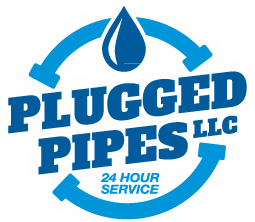Your septic system is essential for managing wastewater in homes that aren’t connected to a city sewer system. While it’s designed to handle the daily flow of waste, septic lines can occasionally become blocked due to buildup or damage, leading to serious problems. Ignoring the early warning signs of septic line issues can result in costly repairs and major headaches. In this blog post, we’ll walk you through the most common symptoms that indicate your septic line may need clearing—and how addressing them early can save you time and money.
1. Slow Drains Across the Home
If you notice that sinks, showers, or toilets throughout your home are draining slower than usual, this could be a red flag. While a slow drain in just one fixture might be a localized issue, slow drainage in multiple areas of your home is often a sign of a more significant problem—most likely a blockage in your septic line.
Why it Happens:
Over time, septic lines can accumulate solid waste, soap scum, grease, and other debris that clog the pipes and reduce water flow. When this happens, water takes longer to drain from your sinks, tubs, and toilets.
What to Do:
At the first sign of slow drains, try using a plunger or a drain snake on individual fixtures. If the problem persists in multiple drains, it’s time to contact a professional to inspect and possibly clear the septic line.
2. Unpleasant Odors Indoors or Outside
One of the most unmistakable signs of a septic line issue is the smell. A properly functioning septic system should not emit any odors. If you notice a foul, sewage-like smell coming from your drains, around your septic tank, or near the drain field, it’s a sign that your septic line is either clogged or your tank is overfilled.
Why it Happens:
Clogs prevent wastewater from flowing through the pipes and into the drain field, causing gases to build up in your system. These gases are then released through your drains or into the yard, resulting in an unpleasant smell.
What to Do:
If you detect sewage smells in your home or yard, don’t ignore it. This could indicate a serious blockage or system overload. Call a septic service provider immediately to avoid a more significant and costly backup.
3. Standing Water or Lush Patches in the Yard
Have you noticed standing water or unusually lush, green patches in your yard, particularly near your septic tank or drain field? This is a clear sign that your septic system is not draining properly. When your septic line is blocked, the wastewater that should be absorbed by the drain field begins to pool on the surface.
Why it Happens:
Septic line clogs prevent wastewater from dispersing properly into the drain field. As a result, the untreated waste can seep to the surface, causing water to pool and creating an unsanitary environment. The nutrient-rich waste also leads to the appearance of greener-than-usual grass patches in specific areas.
What to Do:
Standing water in your yard can pose health risks and should be dealt with immediately. Contact a septic professional to diagnose the issue, clear any blockages, and restore proper drainage.
4. Gurgling Sounds in the Pipes
Have you ever heard strange gurgling or bubbling sounds coming from your drains or toilets after using water? While it may seem harmless, this is often an indication of a clog in your septic line. Gurgling happens when air is trapped in the pipes due to a blockage, preventing the water from flowing freely through the system.
Why it Happens:
When your septic line is clogged, air bubbles form as water tries to bypass the blockage. These bubbles get trapped and create gurgling sounds in your plumbing fixtures.
What to Do:
If you notice gurgling sounds frequently, it’s a sign that your septic line may need professional attention. Don’t wait until the issue escalates—address it as soon as possible to prevent a complete blockage or backup.
5. Backups in Toilets or Drains
One of the most severe signs that your septic line needs clearing is sewage backing up into your toilets, sinks, or tubs. This usually occurs when the septic line is so clogged that waste has nowhere to go, forcing it back into your home. Not only is this a messy and unpleasant situation, but it also poses serious health risks due to exposure to harmful bacteria.
Why it Happens:
A severe blockage in your septic line or an overfilled septic tank causes wastewater to flow backward into your home instead of being properly processed and dispersed into the drain field.
What to Do:
If you experience a sewage backup, it’s crucial to act fast. Stop using water immediately and contact a septic professional for emergency services. Backups are not only inconvenient but can also cause significant damage to your home’s plumbing and structure.
Conclusion:
Recognizing the warning signs of a septic line clog can save you from a potential plumbing disaster. Slow drains, foul odors, gurgling sounds, standing water, and backups are all clear indicators that your septic line may need clearing. Acting quickly when you notice these symptoms can prevent more severe problems, such as system failure or costly repairs.
Don’t wait until it’s too late—regular maintenance and early intervention are the keys to keeping your septic system running smoothly. If you suspect an issue with your septic line, contact the experts at Plugged Pipes to diagnose and clear any clogs before they become bigger problems.

